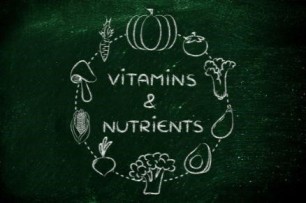General Insurance Blogs, Articles & Updates by - Magma HDI
Have us call you
- RENEW YOUR POLICY
- BUY NEW POLICY

05 Lesser talked about medical tourism destinations in India
Medical tourism is evolving rapidly in India. Previously a hub only for cultural and religious purposes, many Indian destinations have advanced their medical services with excellent infrastructure, world-renowned doctors, and a guaranteed standard of services at about 1/10th of the cost in other developed countries. India has also been the heart of many alternative medicines, and with growing interest in the field, people are flocking to the country.
The government has also made accessing the country for medical purposes much more effortless. A distinct category of visa, made especially for this situation (a medical visa), has also been introduced. Although medical tourism is primarily concentrated in some parts of the country, there are a lot of unexplored places to be added to the list.
This blog intends to introduce you to some medical tourism destinations in India that you may have yet to hear about.
1. Alleppey, Kerala
Alleppey is the centre of Ayurvedic treatments in the country. This is the best place to visit for rejuvenation through various ayurvedic treatments from skilled Ayurvedic doctors. Along with this, Alleppey in itself is a marvel to behold.
Often called the 'Venice of the East,' this place has the famous backwaters of Kerala, where several houseboats with comfy rooms are at your service. These houseboats have been modernised to provide the comforts of a basic hotel with air conditioners, western toilets, and balconies for viewing the lush greenery dotted with coconut trees. The beaches are also must-visits when you're here for various medical treatments.
2. Ahmedabad
Another city that is quickly emerging as one of the best destinations for medical tourism is Ahmedabad. With state-of-the-art facilities, it is surprising that this city is chosen less often for medical treatments.
There are some swoon-worthy places to visit in this beautiful city as well. You can register for various sightseeing tours to get a closer look at this mesmerising city. Whether it is strolling through the Modhera Sun Temple or getting to know the full history of Mahatma Gandhi in Sabarmati Ashram, there is something for everyone here. You can even visit Gir National Park if you're a wildlife enthusiast.
3. Goa
Although Goa is the gregarious party capital of India, the hospitals are constantly upgrading their infrastructure and equipment, which helps in making it another one of the most underrated places in India for medical tourism. Doctors are well-versed in English as well as Hindi, and this makes it much more accessible than a lot of places around the country.
4. Vellore, Tamil Nadu
With the Tamil Nadu government actively promoting medical tourism in Vellore, this city has promising alternative medical options. The variety of alternative medicine in this place makes it attractive for a select group of people interested in fields like acupuncture, Ayurveda, Homeopathy, and Unani.
5. Mumbai
The "City of Dreams" is becoming a popular choice of visitors approaching for various treatments - thanks to the city's advanced medical and research centres. People visiting Mumbai for medical reasons enjoy a fun time exploring the vibrant hotspots and getting adapted to the fast-paced life. Places like Marine drive, Victoria terminus, Haji Ali Mosque, Elephanta caves, Sanjay Gandhi National Park, and others are among the top picks to dive into the city's culture, heritage, and abundant nature.
Medical tourism in India is cost-effective and can be an excellent instrument for promoting the local economy. The above destinations make perfect packages of premium medical services and pleasant places to enjoy and boost positivity. Once you feel positive, you heal faster! With the rapid globalisation of services, getting an online health insurance plan suited to your specific requirements is equally important.
Click HERE to know more about online health insurance.
Disclaimer: The information provided above is for illustrative purposes only. To get more details, please refer to policy wordings and prospectus before purchasing a policy.

AI can do much more than claim settlement for the insurance sector
Artificial Intelligence (AI) has transformed several sectors, and the insurance sector is no exception. AI has proven its value in the insurance sector, from speeding up claims processing to providing personalised policy recommendations. However, its potential extends far beyond claim settlements. This blog will provide insights into how AI can do much more than claim settlement for the insurance sector, especially in buying insurance policies online.
1. Chatbots for personalised recommendations
Buying an insurance policy online has become a preferred option for many people. It is fast, convenient, and often cheaper than buying a policy through a traditional agent. However, it can be overwhelming for customers who are unfamiliar with the insurance industry. This is where AI can play a crucial role in simplifying the process and making it easier for customers to find the right policy for their needs.
Chatbots are computer programs that use AI to automate customer conversations and address their queries via text or text-to-speech. They can answer questions, provide recommendations, and help customers purchase policies. For example, if a customer is looking for car insurance, the chatbot can ask them questions about their vehicle, driving habits, and other relevant information. Using this data, the chatbot can recommend policies tailored to the customer's needs. Chatbots can be integrated into insurance company websites and mobile apps, making them easily accessible to customers.
2. AI for risk assessment
AI can also help with risk assessment, a crucial part of the insurance industry. Traditional risk assessment methods rely on historical data and statistical models. While these methods are effective, they are limited in predicting future risks. AI can help overcome this limitation by analysing various data sources, including social media, weather reports, and satellite images.
For example, AI can analyse social media data to determine if a customer is at risk of a health issue. Suppose a customer frequently posts about unhealthy eating habits or lack of exercise. In that case, AI algorithms can flag them as high-risk customers and recommend health insurance policies that provide coverage for preventative care. This benefits the customer by providing them with the right policy from the best insurance companies by reducing the risk of costly claims.
3. Fraud detection with AI
Traditional fraud detection methods rely on manual processes and statistical models, which can be slow and ineffective. AI can analyse customer data and identify behaviour patterns consistent with fraudulent claims. This could include a customer who frequently submits claims for the same type of damage or a customer with a history of submitting claims at the end of the policy term. By flagging these patterns, AI can help insurance companies identify potential fraud and take action to prevent it.
4. Improving customer service with AI
AI can also help insurance companies provide better customer service. By analysing customer data, AI algorithms can identify customer behaviour and preference patterns. This information can be used to personalise customer service interactions and provide a more positive experience for customers.
5. AI as a tool to enhance human expertise
Suppose a customer frequently contacts customer service with questions about their policy. In that case, AI algorithms can identify this pattern and recommend that the customer be transferred to be contacted by a human agent for a more in-depth conversation. Doing this makes the customer feel heard and understood, while the human agent can provide more personalised assistance.
Overall, the potential of AI in the insurance industry is vast, and the benefits are clear. By embracing AI and incorporating it into their operations, insurance companies can stay ahead of the curve and provide better customer service. The process of how you can buy insurance policy online may have seemed daunting in the past, but with the help of AI, it can become a fast, convenient, and personalised experience for everyone involved.
Click HERE to learn more about how you can buy insurance policy online.
Disclaimer: The information provided above is for illustrative purposes only. To get more details, please refer to policy wordings and prospectus before purchasing a policy.

Effective tips for dealing with nausea due to long winding roads
Hill stations are among the most loved destinations for peace-loving and nature-friendly travellers. The sight of hills, lush greenery, and clouds surrounding us amid the freshness and chill of the mountains is always breathtaking. The roads leading to the hills are also ornamented with scenic beauty and visual delights to die for.
However, the roads to the hills are often long and winding and can cause nausea and motion sickness. Our stomach starts to crunch, and our head starts spinning. We start feeling unwell, gloomy, and dull, and the fun soon fades away.
But wait, we've got a fix for this issue! Let us go through some effective tips to deal with nausea due to long winding roads.
1. Eat light
Make sure you eat light food before you start for a long ride up the hills. Avoid dishes with excessive ghee, butter, and oil. You don't have to stuff up until you are full. Take a basic, light meal so that it gets digested easily.
It is also not advisable to skip a meal before such a journey. An empty stomach can disturb you during your journey and trigger motion sickness. However, avoid drinking too much fluid, such as milk or fruit juice, before you start.
2. Take the front seat
Take the front seat while you travel on long winding roads if you are prone to nausea and motion sickness. You will look straight at the road in front of you while sitting in the front seat and not just focus on the steepness of the hills and the zipping scenery on your sides.
Also, you will have the door handle to hold, which can be comforting. You will be in control of yourself, and your body will not flip with every turn your car takes, helping you to avoid motion sickness and nausea.
3. Talk and distract yourself
Nausea and motion sickness often come when we continuously think about it due to fear and concern. One of the best cures for it is to indulge in constant talking and chit-chatting with your fellow passengers. It will keep you busy and distracted and take your attention away from the treacherous and winding roads.
Play good music in the car to keep your mind engaged and jovial. Do anything that makes you forget about the journey uphill on the winding roads, and you will triumph.
4. Fresh air
Make sure your car is well-ventilated on long, winding roads. Roll down your windows every now and then and allow fresh air to come in. It will take care of your nausea. Do not rely much on your car AC. It will not allow the stench to pass if someone has already puked, making you feel worse.
5. Medication
There are several medicines available in the market that help to reduce nausea. Take it before you start your journey, and it will block your urge to vomit. These medicines also contain sedatives that will help you to doze off during your journey and help you to tackle motion sickness and nausea.
The only way to reach the highest of hill stations is to take that terrifying journey across the long, winding roads, as no train or flight will take you there. Hence, follow the above tips if you are prone to nausea and motion sickness during such journeys, and you should do well.
It is equally important to buy good car insurance that will protect you from financial trouble if your car meets with an accident, suffers any damage, or worse, is stolen during such a trip. Do your research well, and choose the best car insurance that meets your requirements and comes at the best price tag. Safeguarding your car is paramount. Thoroughly research before making a final purchase.
Click HERE to find a reliable car insurance policy.
Disclaimer: The information provided above is for illustrative purposes only. To get more details, please refer to policy wordings and prospectus before purchasing a policy.

Inflation may eat away at your home insurance policy in the event of a disaster
Inflation is a consistent and significant rise in the prices of goods and services over a long period in an economy. As the prices of goods in our consumption basket rise with time, so do our homes' construction and repair costs.
Inflation may also affect your home insurance policy in the event of a disaster. Besides the regular increase in raw materials prices, the labour cost also increases with time. Hence, we may find our house underinsured when making a claim. Our house insurance India policy should be adjusted according to the current construction costs at regular intervals.
1. Effect of inflation
While issuing a home insurance policy, insurance companies assess the probable cost required to rebuild a house. This is based on several assumptions. But they cannot consider the effect of inflation on the rebuilding cost in the coming years. It is a thing of the future and is uncertain.
Suppose your home insurance policy issuer has estimated the cost of rebuilding your house at 15 lakhs rupees in 2015 and provides coverage accordingly. By the time we enter 2023, the cost of rebuilding the same house has shot up to 30 lakhs rupees. This is because of the rise in building prices, construction materials, and labour wages over the years.
If your home insurance policy is not adjusted for inflation and your complete house is destroyed, you will get a reimbursement of only 15 lakh rupees from the insurance company. You must pay the remaining 15 lakh rupees for reconstruction from your pocket. This will prove very costly and cause mental and financial stress at the time of claim settlement.
2. Inflation rider
You should always add an inflation rider or inflation guard clause to your home insurance policy. With this rider, the insurance company will automatically adjust your policy's coverage limit, which is a fair reflection of the current cost of construction at the time of renewal. Thus, your home insurance coverage limit will grow with time and take into account the effect of inflation.
You will not be underinsured anymore and will be reimbursed in full according to the current cost of reconstruction if any mishap occurs.
3. Cost of inflation rider
Insurance companies increase the annual premium of your house insurance India policy when you add the insurance rider to it. However, this rise is usually lesser than the rate of inflation.
Hence, you should always opt for an inflation rider, even if you have to pay an extra premium. This will give you peace of mind and prevent you from suffering any significant financial losses later.
4. Exclusions
The inflation rider will not consider any value addition to your house because of renovations and other improvements. You have to first inform the insurance company about any such value additions to enhance your policy coverage. For such cases, the insurance company may increase the annual premium of your house insurance India policy.
Inflation is a persistent problem in any economy across the globe, and you need to take care of it. It can result in a sharp increase in the cost of restoration and renovation of your house in the event of a disaster.
Hence, you should be cautious about it from the start and regularly review your house insurance India policy. You can estimate the replacement costs, inform the insurance company, and purchase an insurance rider. This will come at a slightly increased premium, but it is absolutely worth it and will give you complete peace of mind.
Click HERE to buy house insurance India.
Disclaimer: The information provided above is for illustrative purposes only. To get more details, please refer to policy wordings and prospectus before purchasing a policy.

Things you should know before buying health insurance for pre-existing illness
Life is full of unexpected twists and turns, and medical emergencies are among them. And the rising healthcare costs in India make a health insurance policy obligatory.
However, with so many alternatives available, selecting an insurance policy that fits the needs of people having pre-existing diseases cannot be easy.
What does pre-existing illness mean?
Pre-existing illness refers to the medical conditions the insured has before investing in a health insurance plan. A few examples of pre-existing illnesses include diabetes, hypertension, thyroid, cancer, etc. The insured must be transparent about all pre-existing health conditions with the insurance provider while purchasing the policy.
Here's a quick breakdown of the factors to consider when purchasing the best health insurance policy for you and your family considering pre-existing conditions.
1. Inclusions of the plan:
Selecting a policy that covers everything under the sun is unwise. It is always better to choose specific features. Further, you must also check what is or isn't covered by the insurance company if you need to file a claim with pre-existing health conditions.
2. All necessary costs to consider:
It is always best to control the price of your health insurance premium. You wouldn't want the cost of your medical bills to spiral out of control. Remember that you need hospitalisation coverage as well as outpatient coverage to get better benefits in the long run. People with pre-existing conditions need to consider the policy that addresses insurance benefits for such features.
3. Taking health insurance at the earliest:
Some people think they will get a health policy when they reach their fifties or sixties. However, this is a dangerous assumption. Going in for health insurance at a younger age can help you save substantially on the premium because insurers are often more willing to offer discounts to young and healthy individuals.
4. The waiting period:
The waiting period is an essential feature of your health insurance policy. You should check whether the company offers any waiting period and, if there is one, how long it is. Typically, you must pay a waiting period, and your insurer will reimburse you.
Insurance providers don't easily offer health coverage to people with pre-existing illnesses. The waiting period for pre-existing diseases ranges between 2 to 4 years. You can avail of the pre-existing diseases coverage after 48 months from the diagnosis of your pre-existing illness. You need to verify your insurance provider's terms and conditions to make claims during the waiting period.
5. Exclusions of the plan:
While selecting a health insurance policy, it is essential to understand the exclusion clause of the plan. This clause is applicable only in specific circumstances, and you must be certain of it before signing up for the policy. Some common exclusions include having health issues caused by excess weight.
Further, ensure you know of any service exclusions under any particular policy. For instance, if you require a specific type of care, it may not be covered under the plan. Sometimes, it is better to go for a higher-tiered plan to get above-the-line coverage to avoid such complications.
6. Hospitalisation coverage:
In addition to medical and diagnostic care, you need hospitalisation or short-term coverage. It is crucial because adverse effects of pre-existing diseases can make you visit the hospital. It would be best if your plan provides coverage for these needs.
You now know that the pre-existing condition clause is an aspect you must check before selecting a health insurance policy. It states whether the insurer will cover your medical expenses if you are diagnosed with a pre-existing condition in the future. It is crucial to research this clause thoroughly before opting for the plan. However, the most important thing is to invest in reliable health insurance because it provides financial security in medical emergencies for you and your family.
Click HERE to buy the best health insurance to deal with pre-existing diseases.
Disclaimer: The information provided above is for illustrative purposes only. To get more details, please refer to policy wordings and prospectus before purchasing a policy.

The lesser-known benefits of regular blood donation that will surprise you
If you want to do something good for humanity, you do not have to deal with arduous tasks. You can reach a blood donation camp and donate your blood. A drop of your blood can be life-saving for others. A report claims that India requires five crore units of blood daily. The same report also reflects that someone requires blood every two seconds.
Since there is no substitute for human blood, donating it is essential for everyone and the only option. Nevertheless, blood donation has a few surprising physical benefits, which we will cover further as this blog progresses. Staying fit is not an illusion. One can achieve and manage it by indulging in regular exercise, a proper diet, and sound sleep. Along with occasional blood donation, every health-conscious person should focus on health insurance policy renewal.
In the following section, find some surprising health benefits of donating blood.
1. A free health screening:
Blood donation ensures a free health screening for the donors. Routine tests have become costly in private laboratories in India. As a result, people do not undergo frequent health check-ups to save money. Not doing this can lead to non-identification with various complex diseases. Diagnosing such diseases early can help in better management and quicker treatment.
A blood donor undergoes a mini-physical examination before the donation process. For example, the screening test includes checking pulse, haemoglobin level, blood pressure, body temperature, etc. The screening test is free, and the test helps to know a few physical complications that were not known to you earlier.
2. Reduce the harmful iron storage in your body:
According to research, one out of two people are vulnerable to hemochromatosis, a physical condition due to iron overload. Most of the time, it is a genetic disease, but you can prevent it from happening by giving blood regularly.
Hemochromatosis patients need to undergo a treatment that removes additional red blood cells from their bodies. Instead of undergoing such a treatment, you can easily reduce iron storage by donating your blood regularly.
3. Reduce the risk of heart diseases:
Donating blood might lower the chance of heart disease, but it doesn't mean that regular blood donors will never get heart disease. According to the studies, a regular blood donor can reduce heart attacks by 80% through blood donation. Various medical research teams have noted that excessive iron in the blood increases the risk of heart attacks. As stated above, donating blood reduces excessive iron storage in your blood.
As a result, donating blood can prevent the risk of heart attacks. But it doesn't give you any guarantees this way, and you still need to stick to your workout and diet plans to avoid heart attacks. People with good heart conditions can obtain low-cost health insurance policy renewal deals.
4. Prevent the risk of cancer:
Cancer is one of the diseases that are fatal and difficult to deal with. A large number of people develop blood cancer. But did you know that you can reduce the risk of blood cancer to some extent through regular blood donation?
Various studies have revealed that blood donation can reduce the risk of blood cancer since it reduces the risk of hemochromatosis. Patients with the peripheral arterial disease have the highest risk of developing blood cancer, and donating blood regularly can lower this risk.
5. Psychological and social benefits:
Many researchers have also found psychological benefits of donating blood. Donating blood is a noble thing, and it can bring mental satisfaction. Many people want to work in favour of humanity, but they cannot find ways of helping others. Donating blood is the best way of helping others, as it can save a life in an emergency.
Keeping the body and mind healthy is the best way of living, and blood donation impacts both body and mind. You will feel healthier and mentally happy after donating blood. You should consider various other ways to keep your health in good shape. One way to do so is by investing in reliable health insurance. Always remain up-to-date regarding the health insurance policy renewal and avoid it from lapsing.
Click HERE before you miss out on your health insurance policy renewal.
Disclaimer: The information provided above is for illustrative purposes only. To get more details, please refer to policy wordings and prospectus before purchasing a policy.

Here is a list of deficiencies you need to be aware of
Today's youth have an unhealthy obsession with eating junk and processed food. Call it convenience or lack of time; people often prefer to eat readily available food. But what everyone seems to forget is that, unless you do not have a well-balanced diet, your body fails to produce the required energy, and you end up feeling lethargic and tired.
Food from cafes and restaurants sound mouth-watering and delicious, but they significantly lack the right amount of nutrients, minerals, and proteins, leading to various deficiencies in your body. These can cause multiple health issues and have irreversible implications for your body.
This article will look at all the common deficiencies and how to take care of them.
1. Vitamin D:
If you experience fatigue, muscle pain, and brittle bones, your body is deficient in Vitamin D. Vitamin D is extremely important for keeping your bones strong. The calcium and phosphorus in your body can be absorbed by your bones only if your body has ample Vitamin D.
Weak bones can lead to low bone density and frequent fractures and injuries. An adult needs at least thirty minutes of direct sunlight daily. It is best to catch morning or evening sunlight for the best results. The afternoon sun is harsh and can cause dehydration, allergies, and fatigue.
2. Vitamin A:
Dry skin, dry eyes, compromised vision, and infections are some Vitamin A deficiency symptoms. Vitamin A is vital in maintaining your body's growth, immune system, and reproductive health. It keeps your heart and lungs working properly.
Vitamin A is also responsible for various daily replacements of skin cells and ensures that enough mucus is produced as a barrier to infections. Foods such as fish, egg, carrots, mangoes, papayas, spinach, etc., are high in Vitamin A and should be taken regularly to ensure proper body health.
3. Vitamin B12:
Extreme lethargy, pale skin, breathlessness, headaches, etc., are symptoms of Vitamin B12 deficiency. Your body needs vitamin B12 for several processes, including DNA construction, energy production, and the functioning of the central nervous system. Chicken, fish, milk, and other dairy products are excellent sources of Vitamin B12. In some cases, the deficiency is caused by improper absorption of the nutrients by the body. In such cases, the doctor might suggest an alternative dosage of injections to balance the B12 levels in your body.
4. Protein:
Hunger, weakness, fatigue, skin and hair problems and weak immune systems are symptoms of protein deficiency. Every basic cell structure requires protein for survival, which is why protein is considered the building block of life.
Protein is vital to help your body repair and regenerate new cells. Eggs, poultry, milk, and dairy are some common and readily available dietary options.
5. Iron:
Pale skin, weakness, inflammation of the tongue, weak nails, and chest pain are some symptoms of iron deficiency. Iron is essential for the overall growth and development of your body. It is responsible for maintaining the hemoglobin levels in RBCs or red blood cells.
Seventy percent of the irons found in your body are found inside the red blood cells. Some examples of food with high iron content are spinach, chickpeas, quinoa, and broccoli.
These were a list of the common deficiencies in humans worldwide. Healthy eating habits and regular exercise are imperative for everyone, regardless of gender and age. Another habit that can keep you in the pink of your health is purchasing insurance. Buy a health insurance policy for family and have an added protection to help yourself against any expenses you might incur regarding medications, tests, or consultations.
Health issues can significantly drain your finances and leave you stressed physically and emotionally. By keeping insurance handy, you can positively deal with these issues and make your move towards a healthy life.
Click HERE to buy a health insurance policy for family.
Disclaimer: The information provided above is for illustrative purposes only. To get more details, please refer to policy wordings and prospectus before purchasing a policy.

The best honeymoon destinations in India that should be on your bucket list
The honeymoon is one of the most important and beautiful periods of marital life. It gives the couple a chance to enjoy each other's company, spend time in beautiful destinations, and make the most of marital bliss. Choosing one of the best destinations for your honeymoon is important so that you enjoy a good time and understand each other well as a married couple.
Many romantic destinations in India can cast a spell over you. They are synonymous with romance, love, and bliss. Since India is such a diverse country, there is no lack of such travel destinations. Whether it is Udaipur's royal palaces or Shimla's snow-covered mountains, there is beauty in every nook and corner of India.
Whenever you take these journeys, you must have an estimate about the general insurance online quote so that you have everything under control and enjoy a safe trip.
If you're looking for the best honeymoon destinations in India, you're at the right place. Following is the list of places that bloom love and entice feelings.
1. Shimla:
If you and your partner want to spend a memorable time on the snow-clad roads of Himachal Pradesh, then Shimla is the ideal destination. It speaks of beauty in every possible way. You can visit the popular Mall Road here and enjoy the aesthetic appeal of this beautiful town.
Shimla is the capital city of Himachal Pradesh and is easily accessible by road from Kalka and Chandigarh. To make the journey more exciting, you can opt to travel from Kalka to Shimla through the scenic route on a toy train.
2. Andaman and Nicobar Islands:
Andaman and Nicobar Islands are one of India's most popular tourist destinations for adventure enthusiasts looking for an island paradise. It provides an enthralling experience that will leave you asking for more.
You can relax with your partner on the golden sands of the beaches or watch the mesmerising sunrise sipping hot coffee together. If you're interested in water sports, you will love this place. From scuba diving to parasailing, there's a lot to explore here. You can easily reach here by air to Port Blair airport.
3. Dalhousie:
Known as the "Little Switzerland" of India, Dalhousie is a beauty in itself. With its lush green valleys and serene surroundings, this town will urge you to stay a little more. The surroundings are so beautiful that you will click many pictures with your loved one here. You can also indulge in hiking, trekking, and camping while you are here.
4. Darjeeling:
Located in West Bengal, Darjeeling caters to the largest tea plantations in the country. It is also home to the largest toy train service in India. Newlyweds can enjoy a blissful evening with their partners in the lush green valleys of Darjeeling. There are also many monasteries to add to the serenity of this town.
5. Udaipur:
If you're a history, royalty, and culture fan, you should visit Udaipur on your honeymoon. It is bestowed with the beauty of several lakes, forts, and palaces. The architecture of the palaces here is not only magnificent but rooted in culture. You can watch the sunset from Fateh Sagar Lake as you spend quality time together.
India offers a lot of options in terms of honeymoon destinations. Couples can never get enough of these breath-taking locations. They have beauty, culture, history, nature, and above all, love. They are perfect for newly married couples who want to experience marital bliss.
Safety is the most crucial aspect, especially when travelling with your partner. Ensure you have a good idea about the general insurance online quote in India and invest in a plan that provides an all-around travel insurance for you.
Click HERE to get the best general insurance online quote.
Disclaimer: The information provided above is for illustrative purposes only. To get more details, please refer to policy wordings and prospectus before purchasing a policy.


